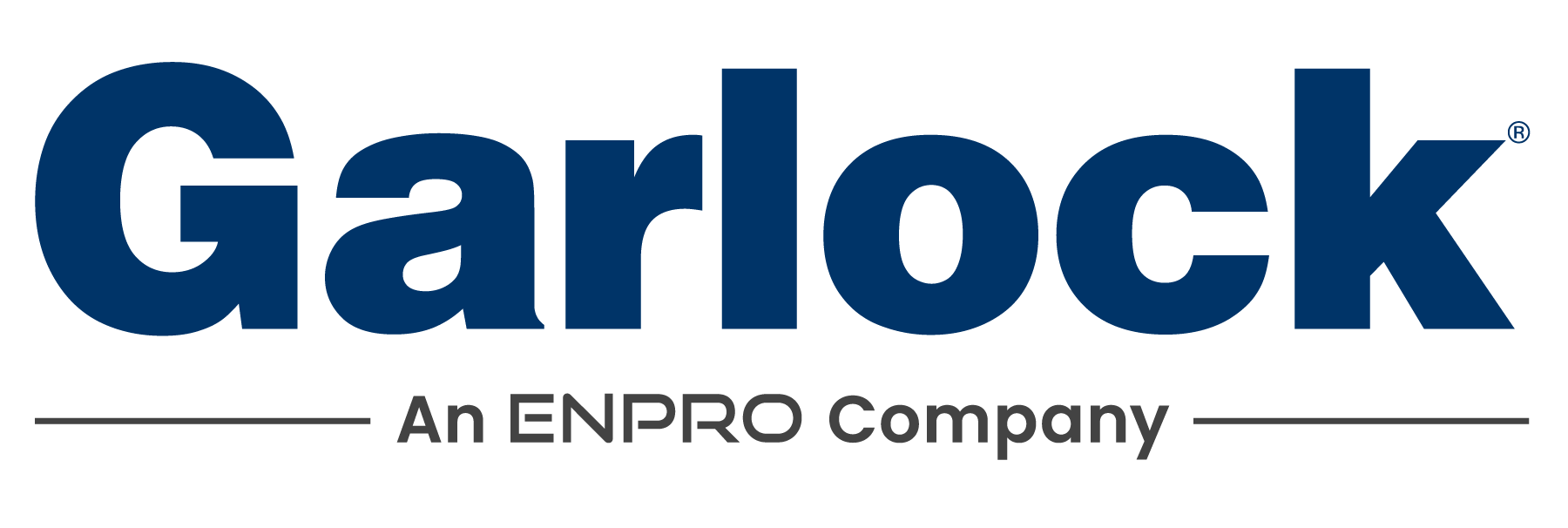How to Choose the Right Tablet Manufacturing Machine for Your Production Needs
In the ever-evolving pharmaceutical industry, the choice of a suitable tablet manufacturing machine is pivotal for ensuring efficient production processes and high-quality outputs. According to a recent report by Grand View Research, the global tablet manufacturing equipment market is projected to reach USD 9.91 billion by 2027, expanding at a CAGR of 6.4%. This growth highlights the critical role that advanced machinery plays in meeting the increasing demand for pharmaceutical products. As manufacturers seek to optimize their operations, selecting the right tablet manufacturing machine becomes essential not only for enhancing productivity but also for adhering to stringent regulatory standards. In this blog, we will explore key factors to consider when choosing a tablet manufacturing machine that aligns with your production needs, ensuring you stay competitive in a rapidly changing market.
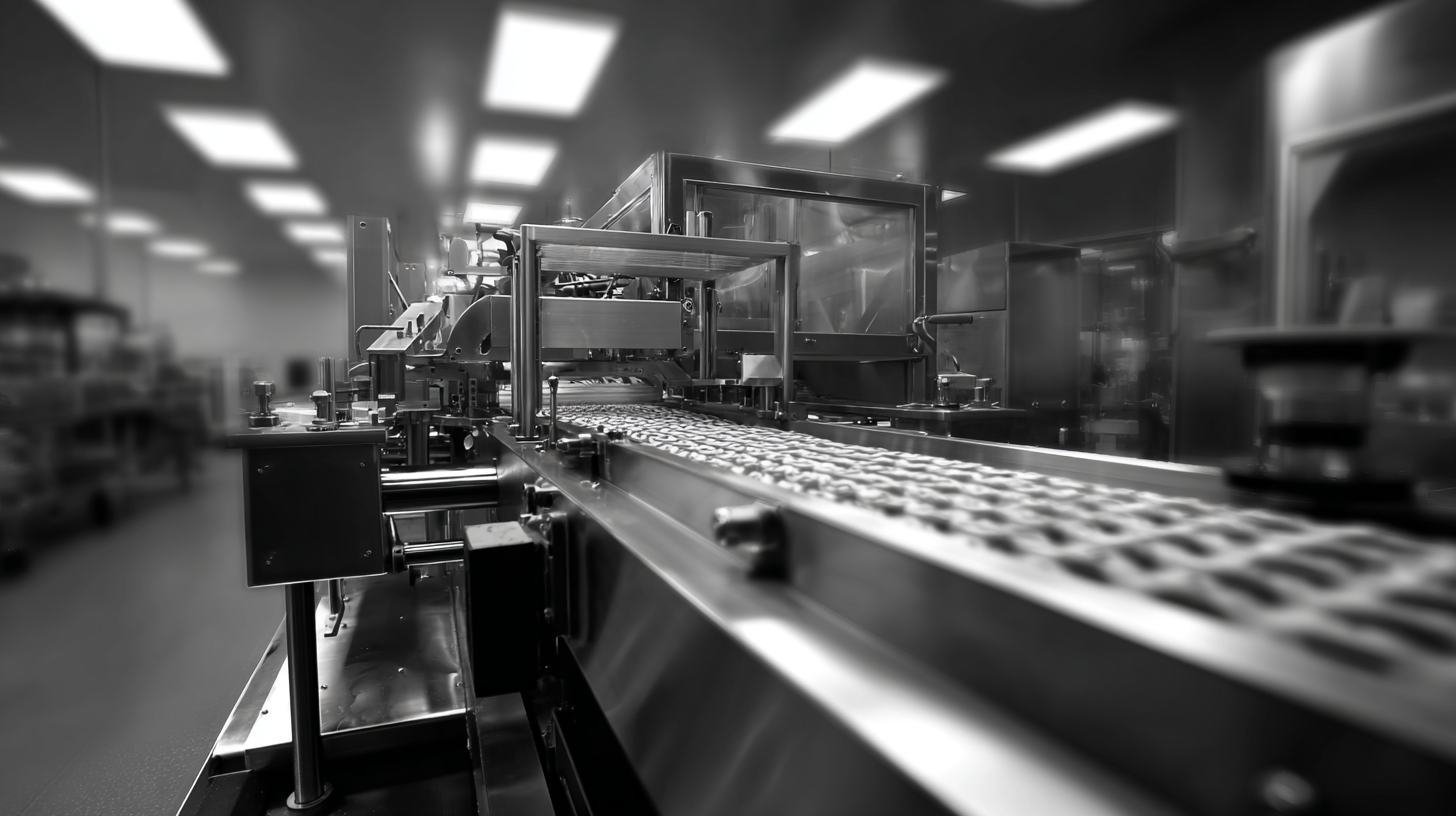
Key Features to Consider When Selecting a Tablet Manufacturing Machine
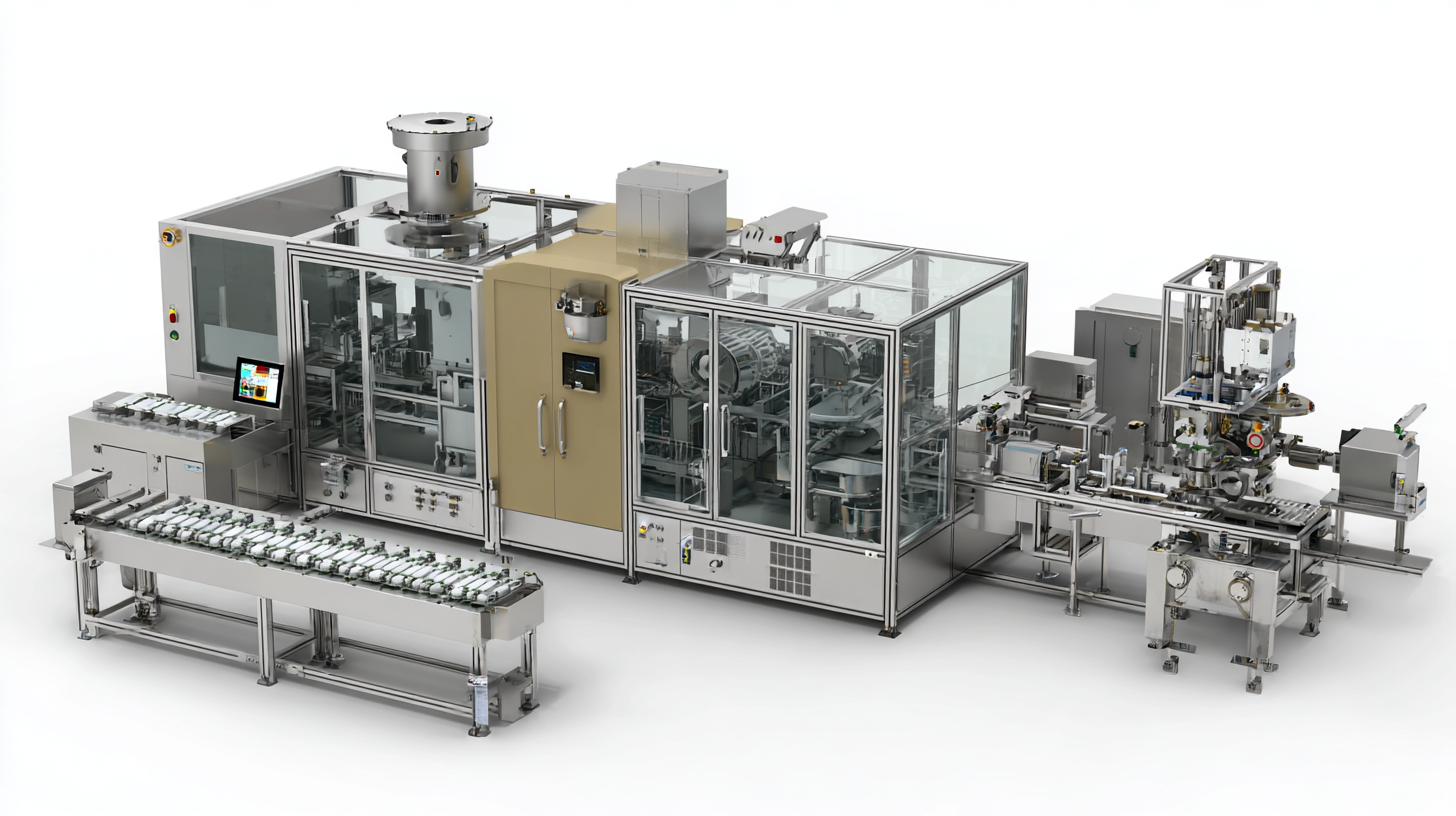 When selecting the right tablet manufacturing machine, several key features should be
considered to ensure it meets your production needs effectively.
First, the machine’s capacity and output rate are crucial. Depending on your production volume, assess whether the machine
can handle the required batch sizes and maintain efficiency without compromising quality. Additionally, consider the
machine speed – faster speeds can boost productivity, but it should not lead to a decline in tablet uniformity and consistency.
When selecting the right tablet manufacturing machine, several key features should be
considered to ensure it meets your production needs effectively.
First, the machine’s capacity and output rate are crucial. Depending on your production volume, assess whether the machine
can handle the required batch sizes and maintain efficiency without compromising quality. Additionally, consider the
machine speed – faster speeds can boost productivity, but it should not lead to a decline in tablet uniformity and consistency.
Another vital feature is the machine's versatility. Look for equipment capable of producing various tablet sizes
and formulations, allowing your production line to adapt to changing demands. Ease of operation and maintenance are also
essential; choose machines with user-friendly interfaces and straightforward cleaning processes
to reduce downtime. Finally, ensure the machine complies with industry standards and regulations, as this guarantees product
safety and quality throughout the manufacturing process. By focusing on these features, you can select a tablet manufacturing
machine that best aligns with your operational goals.
Types of Tablet Manufacturing Machines: Which One Suits Your Needs?
When it comes to tablet manufacturing, choosing the right machine is crucial for optimizing production and ensuring product quality. There are several types of tablet manufacturing machines, each designed to meet specific production needs. For example, high-speed rotary tablet press machines are widely used for mass production, offering an impressive output of up to 200,000 tablets per hour. According to a recent industry report by Research and Markets, the global tablet manufacturing equipment market is projected to grow at a CAGR of 5.4% from 2023 to 2030, emphasizing the increasing demand for efficient tablet presses.
In contrast, for smaller-scale production or specialty tablets, single-station tablet presses may be a better fit. These machines are more versatile and suitable for research and development settings, allowing for quick adjustments and prototyping with minimal setup time. A study by Grand View Research highlights that the growing pharmaceutical industry is driving innovation in tablet manufacturing technologies, leading to the development of machines that can produce a wider variety of tablet shapes and formulations. Choosing the right manufacturing machine ultimately hinges on your specific production volume, product type, and operational flexibility requirements.
How to Choose the Right Tablet Manufacturing Machine for Your Production Needs
| Machine Type | Production Capacity (Tablets/hour) | Key Features | Ideal Use Case |
|---|---|---|---|
| Single Punch Press | 1,000 - 5,000 | Low production, flexible for small batches | Startups, small pharmacies |
| Rotary Tablet Press | 5,000 - 100,000 | High efficiency, suitable for mass production | Large manufacturers |
| Multi-station Press | 20,000 - 200,000 | Customizable tablet sizes, high-speed production | Pharmaceutical companies |
| Coating Machine | Variable | Uniform coating, moisture control | Final product enhancement |
| Granulation Machine | N/A | Improves powder flow, enhances tablet hardness | Before tablet compression |
Evaluating Production Capacity: How Much Can You Really Produce?
When selecting the right tablet manufacturing machine, evaluating your production capacity is crucial. Understanding how much you can realistically produce will help you choose a machine that aligns with your manufacturing goals. Begin by assessing your current production levels and setting clear targets for growth. This will guide you in determining the type of machine that can accommodate your desired output efficiently.
**Tip:** Consider the speed and efficiency of the machine. Machines with higher output rates might seem ideal, but it's also essential to account for the stability and consistency of production. A slightly slower machine that provides better quality can often be more beneficial in the long run.
Additionally, don't overlook the scalability of the machine. You want a manufacturing solution that can adapt to increased production demands without a complete overhaul of your setup. Evaluate machines that offer modular options, allowing you to add components or capacity as your production needs evolve.
**Tip:** Engage with manufacturers and request demonstrations to witness firsthand how machines handle different production volumes. This real-world testing can provide insight into the machine's performance and whether it meets your requirements.
Production Capacity of Different Tablet Manufacturing Machines
This bar chart illustrates the production capacity of various tablet manufacturing machines, measured in tablets per hour. Selecting the right machine depends heavily on understanding these capacities to meet your production needs effectively.
Budgeting for Quality: Balancing Cost and Efficiency in Machine Selection
When selecting the right tablet manufacturing machine, budgeting for quality is crucial in achieving a balance between cost and efficiency. According to recent industry reports, manufacturers are increasingly leaning towards high-functionality machines that not only enhance productivity but also ensure consistent product quality. In a market where competition is fierce, investing in a robust and efficient machine can significantly improve production output and reduce long-term operational costs.
Tip: Always consider the total cost of ownership when choosing a machine. This includes not just the initial purchase price, but also maintenance, operational efficiency, and potential downtime costs. It’s advisable to conduct a thorough assessment of your specific production needs and future scalability before committing to a purchase.
Innovation is also key. As homeowners opt for functional and aesthetically pleasing solutions, manufacturers are prompted to adopt versatile machines capable of accommodating varying production requirements. A report from an industry analysis firm indicates that companies investing in flexible machinery can see up to a 30% increase in production efficiency.
Tip: Engage with machine providers for demonstrations to evaluate how their offerings integrate with your current production processes. This hands-on approach can provide valuable insights and help make a more informed decision that aligns with both budget and operational goals.
Maintenance and Support: Ensuring Longevity and Productivity of Your Machine
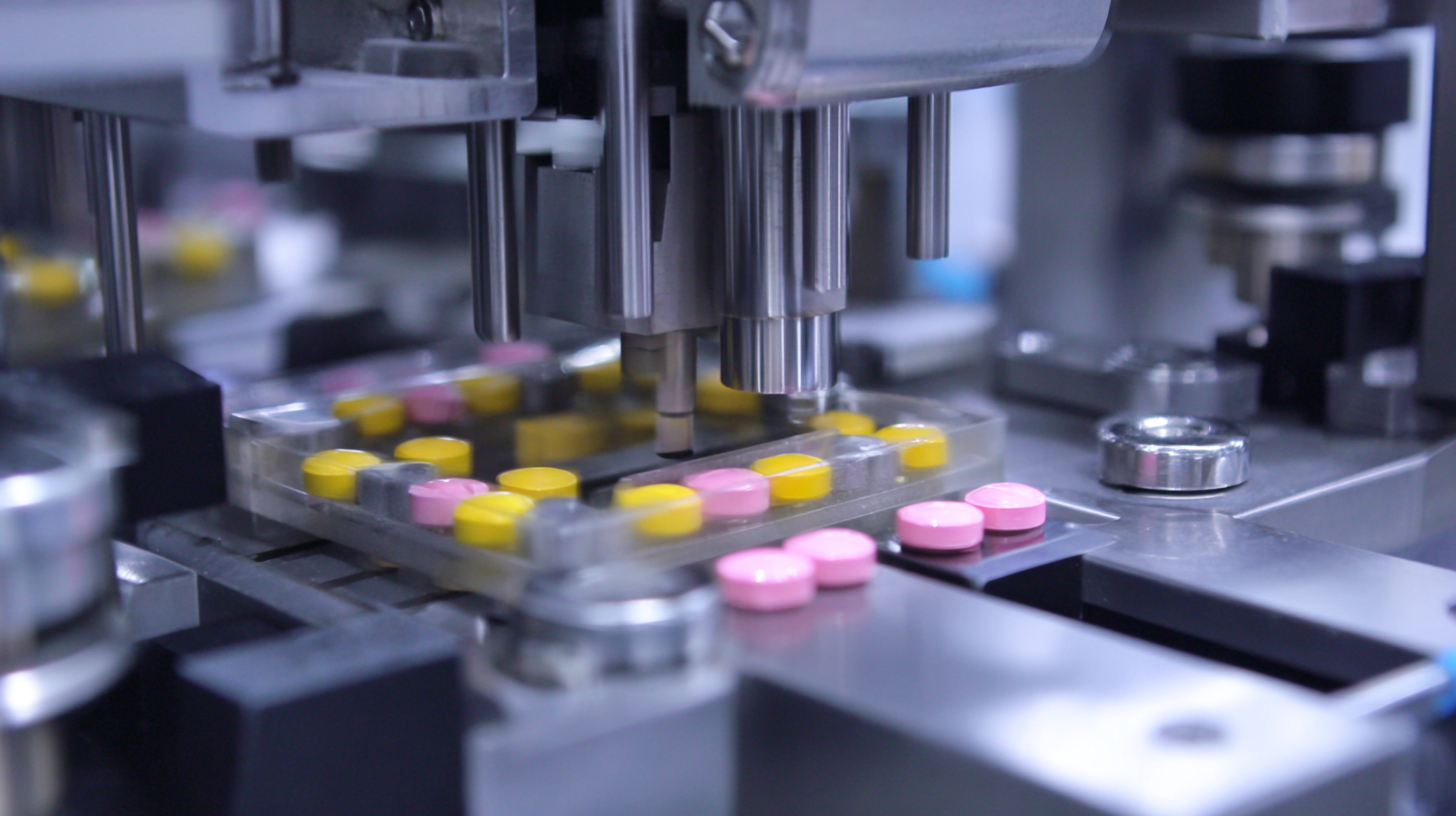 Maintaining a tablet manufacturing machine is crucial for ensuring its longevity and productivity. Recent industry reports indicate that nearly 30% of production downtime is attributed to equipment failure, underscoring the importance of regular maintenance. Implementing a structured maintenance schedule can significantly reduce the risk of unexpected breakdowns and improve overall efficiency. Experts recommend adhering to preventive maintenance guidelines, which include regular inspections, timely lubricant applications, and proactive parts replacements.
Maintaining a tablet manufacturing machine is crucial for ensuring its longevity and productivity. Recent industry reports indicate that nearly 30% of production downtime is attributed to equipment failure, underscoring the importance of regular maintenance. Implementing a structured maintenance schedule can significantly reduce the risk of unexpected breakdowns and improve overall efficiency. Experts recommend adhering to preventive maintenance guidelines, which include regular inspections, timely lubricant applications, and proactive parts replacements.
Tips: Ensure that your maintenance team receives proper training on the specific needs of your tablet manufacturing machine. This not only keeps machinery in top condition but also fosters a culture of safety and compliance. Additionally, tracking maintenance history through a digital management system can enhance transparency and help identify recurring issues.
Moreover, choosing a manufacturing machine that comes with robust support services can make a substantial difference. According to a survey conducted by the Manufacturing Institute, companies that invested in comprehensive support services saw a production efficiency increase of up to 15%. It is essential to assess not only the machine's features but also the manufacturer's commitment to ongoing support and training. This ensures that your team can respond promptly to any operational challenges, ultimately extending the machine's lifecycle and driving production success.
Related Posts
-
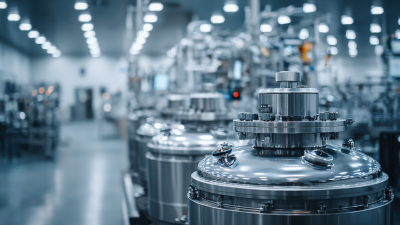
Ultimate Guide to Selecting the Best Pharmaceutical Processing Equipment for Your Needs
-

What is the Impact of Advanced Pharma Equipment on Global Drug Production Efficiency
-

Navigating the Landscape of Pharmaceutical Solutions for Your Business Success
-

The Future of API Manufacturing Innovations Driving Global Supply Chain Efficiency
-

Maximizing Efficiency in API Manufacturing with Digital Strategies and Key Industry Insights
-

Unlocking the Advantages of API Manufacturing for Enhanced Product Quality
